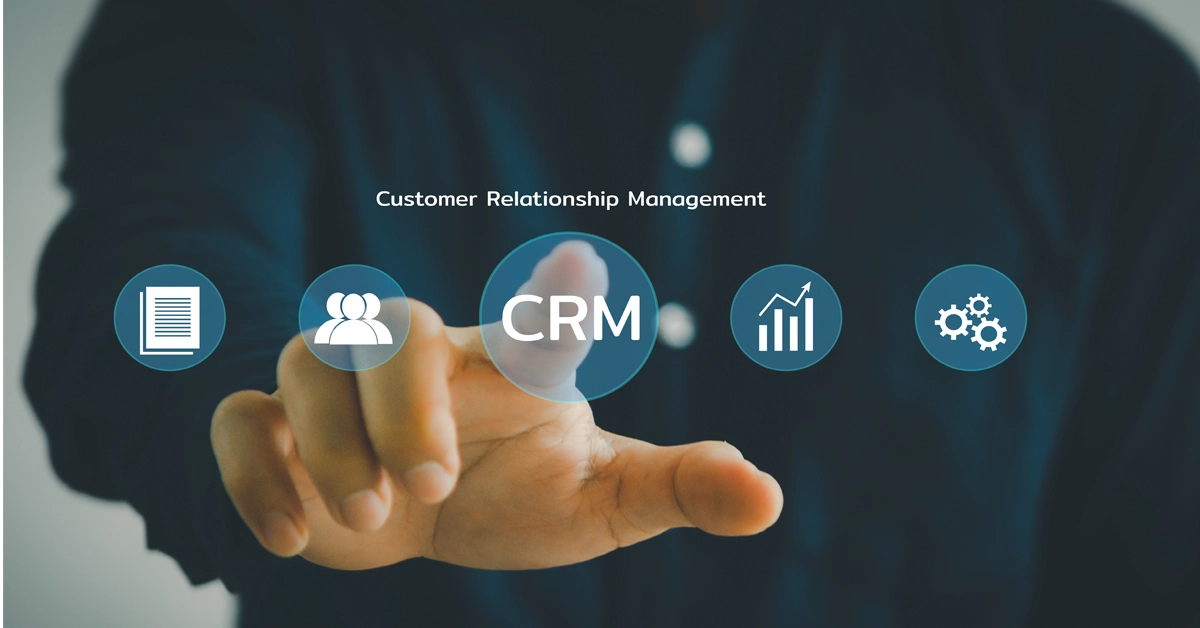Top 15 CRM Features That Are Absolutely Necessary

By taking advantage of advanced CRM features you gain a deeper understanding of your customers and can tailor your interactions for maximum impact. A whopping 74% of businesses credit CRM software for providing them with better access to customer data, but how can you translate that data into exceptional customer service?
Customer Relationship Management (CRM)! These systems offer you a comprehensive suite of functionalities that go beyond data storage. They use a wealth of data to generate valuable insights about your customers.
But with an abundance of CRM features available, which ones are most effective for delivering exceptional customer service?
This blog post will explore 15 must-have CRM features that can empower your team to provide outstanding customer care.
Table of contents:
- What is Customer Relationship Management (CRM)?
- Top 15 CRM Features That Are Absolutely Necessary Today
- Ready to Pick the Right CRM?
What is Customer Relationship Management (CRM)?
CRM, or Customer Relationship Management, is a strategy you can use to manage all the interactions with current and potential customers.
You can use CRM software to centralize all your customer data, giving your teams a 360-degree view to understand the customer’s needs.
Top 15 CRM Features That Are Absolutely Necessary
1. Contact Management
Contact management is a core feature of CRM software that allows you to store, manage, and access contact information about customers in one centralized location.
Furthermore, it also helps track leads as they move through the sales pipeline and manage customer profiles, interaction history, purchases, etc.
It helps in providing a personalization effect for customers, making them feel valued and ultimately strengthening customer relationships.
2. Interaction Tracking
Interaction tracking lets you record and analyze every interaction between your business and customers.
This feature lets you create a historical database for each customer, including every customer’s interaction, call, message, email, and meeting.
Interaction tracking aims to create a 360-degree view of the customer journey, enabling personalized and effective customer service, sales strategies, and marketing efforts.
3. Lead Management
Lead management is a vital feature within a customer relationship management (CRM) system that focuses on acquiring, tracking, and managing potential leads until they convert into potential customers.
One of the key functionalities of lead management is lead scoring. This process allows sales teams to focus on the right leads, filter leads, and identify leads and their position in the sales funnel.
It can also be valuable for marketing teams to understand target audiences and tailor campaigns accordingly.
4. Pipeline Management
Pipeline management provides visual representations that help your business efficiently manage your sales pipeline and ensure to keep track of your leads so you don’t lose out on any of them to maximize sales outcomes without investing in additional resources.
It gives you visibility into the sales funnel, so you can instantly find out what stage of the sales cycle a customer is in.
Doing this gives you an idea of how to plan your next steps, identify improvement areas, and analyze sales reps’ performance.
5. Sales Forecasting
Sales forecasts help you predict future sales based on data from the current pipeline. This powerhouse analyzes past sales data, interaction history, and market trends to predict future sales figures.
This increased accuracy improves resource allocation (staffing, budgeting, sales efforts) based on estimated volumes.
This reduces risk by identifying potential obstacles and opportunities and promotes collaboration through a shared sales vision for the team.
6. Analytics and Data Insights
CRM analytics feature provides customer data insights. This feature is not just about collecting and converting data into useful information.
By analyzing customer behavior and interactions, businesses personalize experiences, improve service, and anticipate future needs.
Thus, you can make better decisions about products, services, marketing, and overall customer communication.
7. Task Management
The task management feature within CRM software lets you plan, track, and monitor how effectively your team completes tasks.
This includes creating centralized tasks, setting deadline reminders, and using email integration and calendar syncing to keep everyone organized.
8. Reports and Dashboards
Reports and dashboards in CRM software are a centralized hub for sales data and information.
Dashboards provide real-time analysis of KPIs such as sales progress, support tickets, and social media for quick action. They also empower data-driven decision-making, performance improvement, and team collaboration.
Reports provide in-depth insights into sales and marketing to make data-driven decisions.
Using user-customized reports and dashboards, you can view statistics from a highly visual, engaging perspective.
9. Data Security and Privacy
CRM contains sensitive customer information, sales data, and financial information about your company. This CRM feature keeps customer information secure with encryption, access controls, and audit trails.
Complying with data privacy regulations and implementing regular security updates helps your business to build customer trust, reduce data breach risks, and maintain compliance.
10. Mobile CRM
A customizable feature like mobile CRM lets your sales team access key information about your prospective customer like contacts, history, and purchases from anywhere.
Alerts inform you about new customer interactions so your team can assist quickly.
11. Email Marketing Integration
Features like Email marketing integration into CRM systems enable seamless management of email campaigns improving engagement rates. This simplifies the tracking of email interactions, ultimately increasing marketing efficiency and ROI.
Integration with the email platform creates a central hub for all customer communications within the CRM in which emails and attachments are captured automatically, saving time and ensuring a complete communication history.
12. Social Media Integration
Social media integration into CRM systems enhances how your business interacts with customers on social platforms. By connecting social media accounts directly to the CRM, this feature consolidates customer interactions and data into a single dashboard.
This enables your business to respond more quickly to messages, comments, and mentions. Thus ensuring a consistent and engaging customer experience.
Additionally, it gives insight into customer preferences and behaviors, making it easier to tailor communications and promotions effectively.
13. Third-Party Integrations
Third-party integration into CRM systems extends CRM capabilities by connecting to external applications, including ERP systems, accounting software, project management tools, and customer service platforms. These integrations help streamline your business processes and eliminate data silos.
For example, integrating ERP systems with CRM can directly link sales data with inventory management while optimizing the supply chain.
Similarly, the popular CRM platform HubSpot offers a robust integration ecosystem through its HubSpot App Marketplace.
Users can easily connect HubSpot to solutions like Microsoft Dynamics for ERP, QuickBooks for accounting, Asana for project management, and Zendesk for customer service.
14. Customization Options
CRM solutions offer customization features, allowing you to choose which features to include in your package. CRM systems also allow you to modify the software according to your business’s operational needs and preferences.
This level of customization ensures that the CRM software fits into your business’s existing processes and grows with the business to suit changing needs over time.
15. Collaboration Options
Collaboration options within CRM systems are essential features that promote effective teamwork and communication across different departments.
Integrating tools like shared calendars, document management, real-time chat, and work assignment functionality directly into a CRM platform can increase your business’s productivity and efficiency.
These options ensure that all team members can access the latest customer data and work closely together, regardless of their physical location.
For example, sales teams can instantly share customer insights with the marketing team within the CRM, enabling more targeted and cohesive marketing campaigns.
Ready to Pick the Right CRM?
There are many CRM software options available in the market.
When choosing a new CRM for your business, one thing to keep in mind is the pros and cons of each CRM option. To do this effectively:
- Get familiar with the various features offered by different CRMs.
- Determine the capabilities the CRM should offer based on your business’s needs.
- Plan and test your business goals and the problems you want to solve.
- Take a free trial and demo to understand the CRM’s functionality and suitability for your business.
By focusing on these critical points, you can choose a better CRM.
Related Post
Copyright © gocustomerexperience.com. All Rights Reserved.




